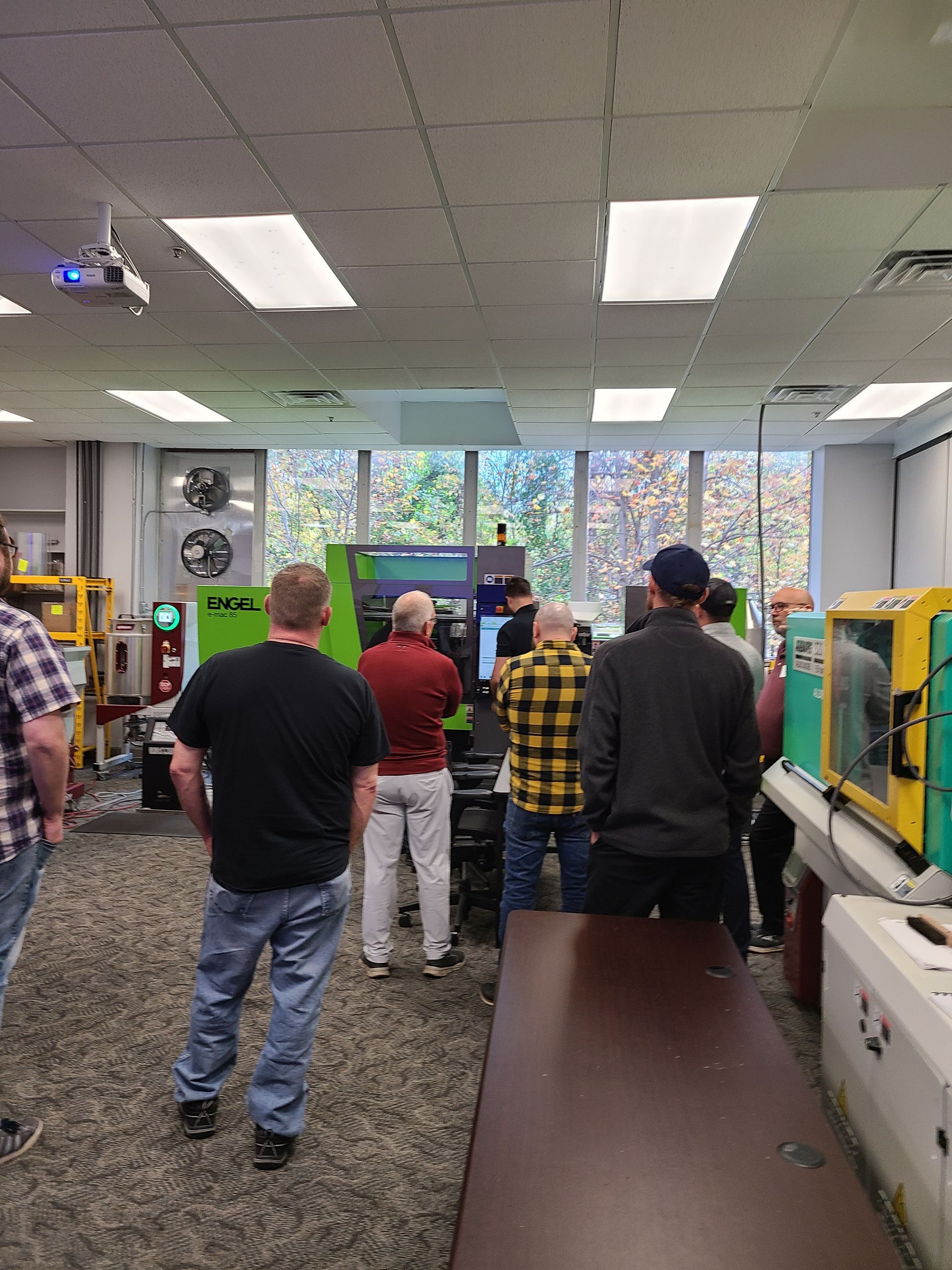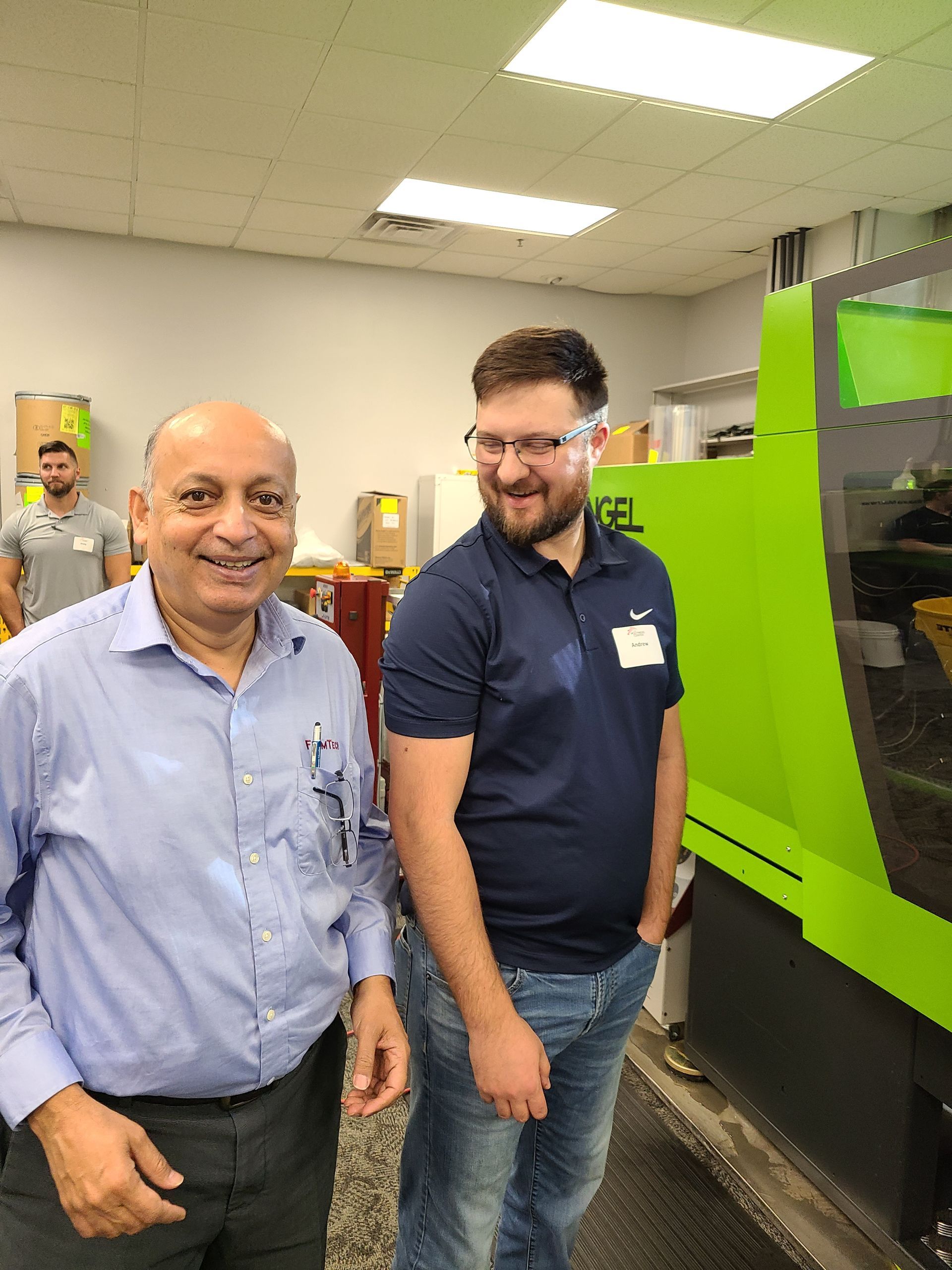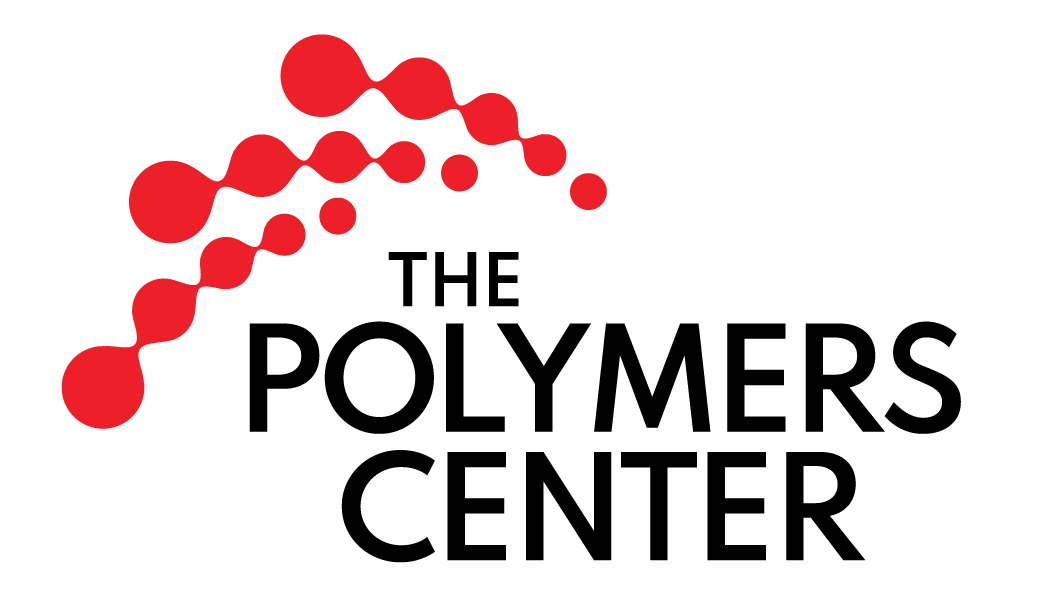Contact Form HP
We will get back to you as soon as possible.
Please try again later.
Contact Form HP
We will get back to you as soon as possible.
Please try again later.
The Polymers Center is proud to partner with a wide range of companies who help us achieve our mission to increase knowledge, provide technical support, and develop emerging technologies in the polymers industry. From injection molding training, to materials testing and robotics, our partners help us showcase the latest and greatest technology the industry has to offer.
Design of Experiments for Injection Molding (Hands-On)


Date: TBD
Time: 8:30am – 4:00pm
Where: Attend in person at The Polymers Center
8900 Research Drive
Charlotte, NC 28262
Cost: $1,195
Instructor: Suhas Kulkarni
Mr. Kulkarni has 30 years of experience as a process engineer. His main area of expertise is Scientific Processing for Injection Molding. He holds a Master’s degree in Plastics Engineering and is the author of the best-selling book Robust Process Development and Scientific Molding.
He has been teaching courses in Injection Molding Processing for the last 23 years and has worked as a Process Engineer for 14 years before he started FIMMTECH INC based in San Diego, CA. More info is available on www.fimmtech.com
Syllabus
Day 1
- Introduction to Scientific Processing and Scientific Molding
- Challenges in Injection Molding Process Development
- Required basics of Polymer Morphology, the PVT diagram, Data Sheets
- The 11+2 Inputs and 10 Output of an Injection Molding Process
- Process Development 1: Scientific Molding
- Melt Preparation
- The 6-Step Study
- Process developed after the SIM studies
- Challenges with the process developed by SIM only
Day 2
- Process Development 2: Design of Experiments (DOE)
- What is a DOE?
- History of DOEs
- Is SIM the same as DOE?
- The theory and Basics of DOE
- Types of Experimental Designs
- Orthogonal Arrays
- Interactions
- Confounding and Aliasing of factors
Additional Topics Covered
- Factor Selection for Injection Molding
- Tornado Charts, Main Effect Plots,
- Use of Software for Analysis
- Using DOE analysis in production for reducing inspection, improving part quality, reducing scrap
- Measurement Sample Collection, replicates
- Randomization
- ANOVA, choosing meaningful Highs and Lows
- ‘Bad Data’: Garbage In, Garbage Out!
- Challenges in measurements in multicavity molds
- Reducing inspection of DOE samples
- Simple Plan to get started with DOEs
Note: This is a hands-on class where we will be performing experiments at the molding machine, measuring parts and analyzing the results.
To Register, download the registration form.
